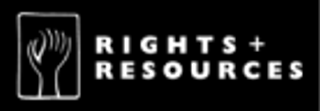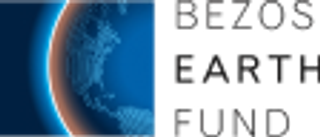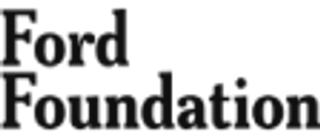Who is involved?
LandMark involves many collaborators from around the world
LandMark’s governance structure is split into two principal components: our Steering Group is the central decision-making body that sets LandMark’s vision, mission, goals, policies, and strategies, while our Secretariat manages the platform on a day-to-day basis and reports to the Steering Group.
Steering group
The Steering Group is the principal LandMark governance organ and the central decision-making body. It is responsible for overseeing LandMark and the work of the Secretariat. The Steering Group sets LandMark’s vision, mission, goals, policies, and strategies.
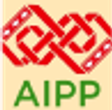
Asian Indigenous People’s Pact (AIPP)
Chiang Mai, Thailand
The Asia Indigenous Peoples Pact (AIPP) is a regional organization founded in 1992 by indigenous peoples’ movements. AIPP is committed to the cause of promoting and defending indigenous peoples’ rights and human rights and articulating issues of relevance to indigenous peoples.

Aliansi Masyarakat Adat Nusantara (AMAN)
Jakarta, Indonesia
AMAN is an independent organization of Indigenous peoples fighting for the enforcement of customary rights and the sovereignty of Indigenous peoples as a whole, including realization of justice and prosperity in Indigenous people’s lives, Political sovereignty, economic independence, and cultural dignity for Indigenous peoples.

COICA (Organization of the indigenous peoples of the Amazon Basin)
Quito, Ecuador
COICA is an umbrella organization of several indigenous organizations of the Amazon Basin. Its objectives are to promote and develop mechanisms that encourage the interaction of Indigenous groups with its network, to defend their right to self-determination, to coordinate the actions of its members on an international level, to fortify and cultivate mutual collaboration between all Indigenous peoples of the region, and to promote the cultural vindication of its members.

Instituto del Bien Común (IBC)
Lima, Peru
IBC works across landscapes of the central and northern Andean Amazon, on projects related to territorial planning, governance of the commons, preservation of the environment, sustainable development, respect for the rights and culture of indigenous and non-indigenous peoples and promotion of scientific and local knowledge. IBC has been mapping community lands in Peru for 15 years and is a member of the RAISG mapping group for the Amazon Basin.

International Land Coalition (ILC)
Rome, Italy
As a global and united alliance, members of the ILC envision a just, equitable and inclusive world in which land rights are secure, and poverty is eradicated. The change we seek is defined in our 10 commitments to jointly realise people-centred land governance. All members individually and collectively contribute to the realisation of these commitments in policy, practice and agenda setting at their respective levels of action.
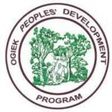
OPDP (Ogiek People Development Programme)
Nakuru, Kenya
OPDP exists to advocate for the participation, self-determination and human rights of the members of the Ogiek community, but also more broadly to promote and protect the cultural, socio-economic, political, environmental and collective rights for sustainable development of all the indigenous ethnic minorities and marginalized communities in Kenya.

Philippine Association for Intercultural Development, Inc. (PAFID)
Quezon City, Philippines
An association of people interested in the problems of cultural minority groups. PAFID is engaged in the development of Indigenous social organizations, management of ancestral domains, community-based natural resources management planning, community mapping, agro-forestry, technical services, policy advocacy and more.
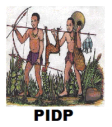
PIDP (Programme intégré pour le développement du peuple pygmée au Kivu)
Goma, DRC
PIDP works to defend the human rights of the indigenous pygmy peoples of Bambuti, free of discrimination and marginalization, while living in unity and solidarity with other communities. Most notably, PIDP promotes their right to civic participation, socioeconomic and cultural rights, as well as the rights to their land so that they may actively participate in their emancipation through their self-determination in a healthy environment.
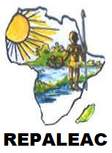
REPALEAC (Réseau des Peuples Autochtones et Communautés Locales pour la gestion durables des écosystèmes forestiers d'Afrique)
Yaoundé, Cameroon
REPALEAC is a network of Indigenous and Local Peoples which aims to increase and ensure their participation in the management of forest ecosystems in Central Africa, by carrying out actions to defend their rights and the sustainability of the ecosystems to which they are intimately linked and on which their survival depends.

Rainforest Foundation UK (RFUK)
London, UK
RFUK works to support Indigenous peoples and traditional populations of the world’s rainforest in their efforts to protect their environment and fulfil their rights to land, life, and livelihood by assisting them with: 1) Securing and controlling the natural resources necessary for their long term well-being and managing these resources in ways which do not harm their environment, violate their culture or compromise their future; 2) Developing means to protect their individual and collective rights and obtain, shape and control basic services from the State.

Rights and Resource Initiative (RRI)
Washington, DC, USA
RRI works together with both Indigenous peoples' and community organizations, civil society, Governments, international institutions, and the private sector to promote and accelerate global efforts to improve local livelihoods, reform forest tenure and governance, combat poverty, mitigate the effects of climate change, and deliver sustainable development. RRI promotes greater global commitment and action towards policy, market and legal reforms that secure their rights to own, control and benefit from natural resources, especially land and forests.
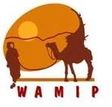
WAMIP (World Alliance of Pastoralist Communities and Mobile Indigenous Peoples)
Ahmedabad, India
The World Alliance of Mobile Indigenous Peoples (WAMIP) is a social movement of grassroot organizations of nomadic peoples and communities sharing pastoralism with various forms of mobility as a livelihood strategy while conserving biological diversity and using natural resources in a sustainable way. The mission of WAMIP is to assist and empower mobile indigenous peoples throughout the world to maintain their mobile lifestyles in pursuit of livelihoods and cultural identity, to sustainably manage their common property resources and to obtain the full respect of their rights.

World Resources Institute (WRI)
Washington, DC, USA
WRI’s Land and Resource Rights (LRR) project works with governments, civil society organizations, development agencies, and other actors to strengthen communities’ land, resource, and property rights as a path to poverty reduction, sustainable development, and environmental management. Operating across Latin America, Africa, and Asia, LRR’s work focuses on connections between land and equitable access to forests, food, and water.

Jagdeesh Rao Puppala - Common Ground initiative
India
Jagdeesh is CEO of Living Landscapes, based in Hyderabad, India. Living Landscapes is the anchor organisation of the Common Ground initiative, a collaborative systems change effort in the domain of environmental governance and rural livelihoods in India. As a Collaborative of partners, Common Ground works on system level barriers and opportunities, so that entrepreneurial action by multiple actors, organisations and initiatives is accelerated and multiplied. The focus is on “field setting,” i.e., seeding the ecosystem with change leaders and catalysing collaborative action by setting in place institutional mechanisms and social infrastructure, that allow multiple actors to build on top of these elements, creating potential for scale and amplified impact.

Liz Alden Wily, Independent Land Tenure Specialist
Kenya
Liz works independently as analyst, policy adviser and practitioner, mainly in Africa, and contributes to various global and regional initiatives, with the overall target to see one billion poor customary landholders acknowledged as legal owners of family and community lands by 2030.

Fabrice Dubertret, Geographer
France
Fabrice is a geographer, focusing his research on the political use of participatory mapping by indigenous peoples to secure their land rights. More specifically, he analyses the critical role global transparency of information regarding collective land claims – often invisible on official maps – can play in securing indigenous rights to their lands, territories, and resources.
Secretariat
The LandMark Secretariat is responsible for the day-to-day management of the web platform. Its principal roles include the development and implementation of annual work plans and budgets, fundraising, engaging indigenous people and other local communities and their representatives in the governance of LandMark, and supervising the technical management and administration of the online platform.

International Land Coalition (ILC)
Rome, Italy
As a global and united alliance, members of the ILC envision a just, equitable and inclusive world in which land rights are secure, and poverty is eradicated. The change we seek is defined in our 10 commitments to jointly realise people-centred land governance. All members individually and collectively contribute to the realisation of these commitments in policy, practice and agenda setting at their respective levels of action.

World Resources Institute (WRI)
Washington, DC, USA
WRI’s Land and Resource Rights (LRR) project works with governments, civil society organizations, development agencies, and other actors to strengthen communities’ land, resource, and property rights as a path to poverty reduction, sustainable development, and environmental management. Operating across Latin America, Africa, and Asia, LRR’s work focuses on connections between land and equitable access to forests, food, and water.
Supporters
Several organizations have supported LandMark with financial resources and other assistance.
Present Supporters
Past Supporters

Climate and Land Use Alliance
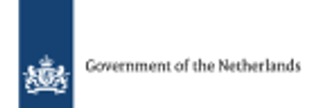
Ministry of Foreign Affairs of the Netherlands
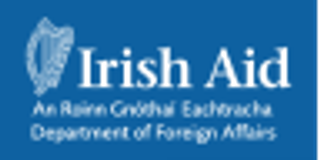
Irish Aid

Good Energies Foundation
